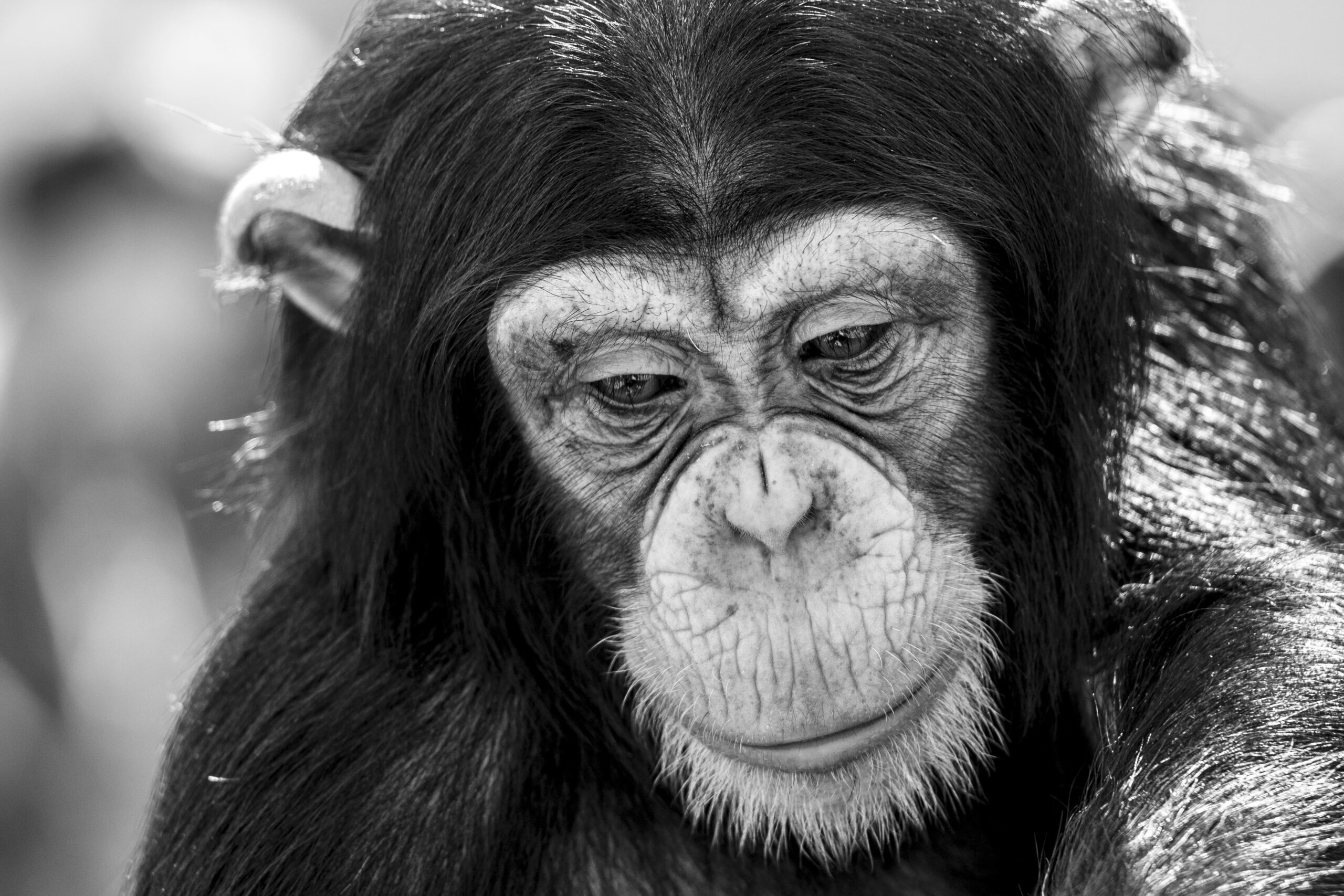When a human virus was identified as the source of a 2017 respiratory disease outbreak among chimps at Uganda’s Kibale National Park, the discovery shed light on the devastating impact of human diseases on endangered primate populations. Researchers are now taking a public health approach to combat reverse zoonoses — animals contracting diseases from humans — and hope to mitigate this growing problem.
Tony Goldberg, a wildlife epidemiologist and researcher at the University of Wisconsin-Madison, led studies that analyzed samples taken from a chimp that died of pneumonia in the Kibale National Park outbreak. The analysis showed that the female chimp had been infected with human metapneumovirus. This is a common respiratory virus in humans that becomes a serious health threat for chimpanzees, who lack immunity to it. Goldberg said he “realized this is not just something that happens now and then. It’s a major problem, and we should formalize the study of it.”
The Threat of Reverse Zoonoses
Reverse zoonoses pose a significant risk to wildlife worldwide. Examples have been identified in species including mussels, cheetahs, African painted dogs, and Asian elephants. The threat is especially high for great apes, however, due to their genetic similarity to humans. “We share over 98% of our genetic material with gorillas and chimpanzees, so we can easily make them sick,” said Gladys Kalema-Zikusoka, a wildlife veterinarian who founded Conservation Through Public Health, a non-profit group in Entebbe, Uganda, that is dedicated to promoting the healthy coexistence of people and animals.
The severity of the problem is often overlooked but can be a larger threat to chimps than habitat loss or poaching. Studies tracking wild chimp mortality over more than 35 years among animals living in a community in Kanyawara in Kibale National Park found that respiratory illness was the leading cause of mortality for more than one-quarter of all deaths and over half of deaths with an identified cause. To combat the problem, experts are supporting efforts to boost public awareness and forge collaborations between scientists, conservationists, and local communities.
Be a Better Tourist
To prevent disease transmission, best practices for tourists visiting great ape habitats include maintaining a safe distance, wearing facemasks, using hand sanitizer, and not traveling to great ape sites while ill. Enforcement of such guidelines is critical. However, it can be challenging to control tourists’ behavior, and restricting their access would be difficult for a tour operator whose income depends on giving visitors a positive experience. Innovative approaches, such as incentivizing responsible tourism practices and improving hygiene practices and education, offer promising solutions.
Empowering Local Communities
Researchers used a public health approach to determine that children living near the national park were passing on pathogens picked up at school to their parents, who worked in the park. Although the parents were more often asymptomatic carriers, they increased the risk of the chimps becoming infected. When schools were closed between March and September 2020 due to COVID-19 lockdowns, there was a significant decrease in infections among the chimps.
To protect both children and chimpanzees, local officials have increased hand-washing facilities at schools, covered dirt floors with concrete, and promoted improved hygiene practices.
Looking Ahead
While the battle against reverse zoonoses is ongoing, there is hope for the future. By improving education, implementing preventive measures, and fostering behavioral change, researchers hope to offer stronger protections to threatened animals and minimize respiratory disease outbreaks. “Behavioral change takes time, but if you’re committed, it eventually happens,” said Patrick Tusiime, the health coordinator for the Kasiisi Project, a non-profit group promoting conservation, education, and health in primary schools around Kibale. “So we need to start now.”
Did you enjoy this blog post? Check out our other blog posts as well as related topics on our Webinar page.
QPS is a GLP- and GCP-compliant contract research organization (CRO) delivering the highest grade of discovery, preclinical and clinical drug research development services. Since 1995, it has grown from a tiny bioanalysis shop to a full-service CRO with 1,200+ employees in the U.S., Europe and Asia. Today, QPS offers expanded pharmaceutical contract R&D services with special expertise in neuropharmacology, DMPK, toxicology, bioanalysis, translational medicine and clinical development. An award-winning leader focused on bioanalytics and clinical trials, QPS is known for proven quality standards, technical expertise, a flexible approach to research, client satisfaction and turnkey laboratories and facilities. Through continual enhancements in capacities and resources, QPS stands tall in its commitment to delivering superior quality, skilled performance and trusted service to its valued customers. For more information, visit www.qps.com or email [email protected].






